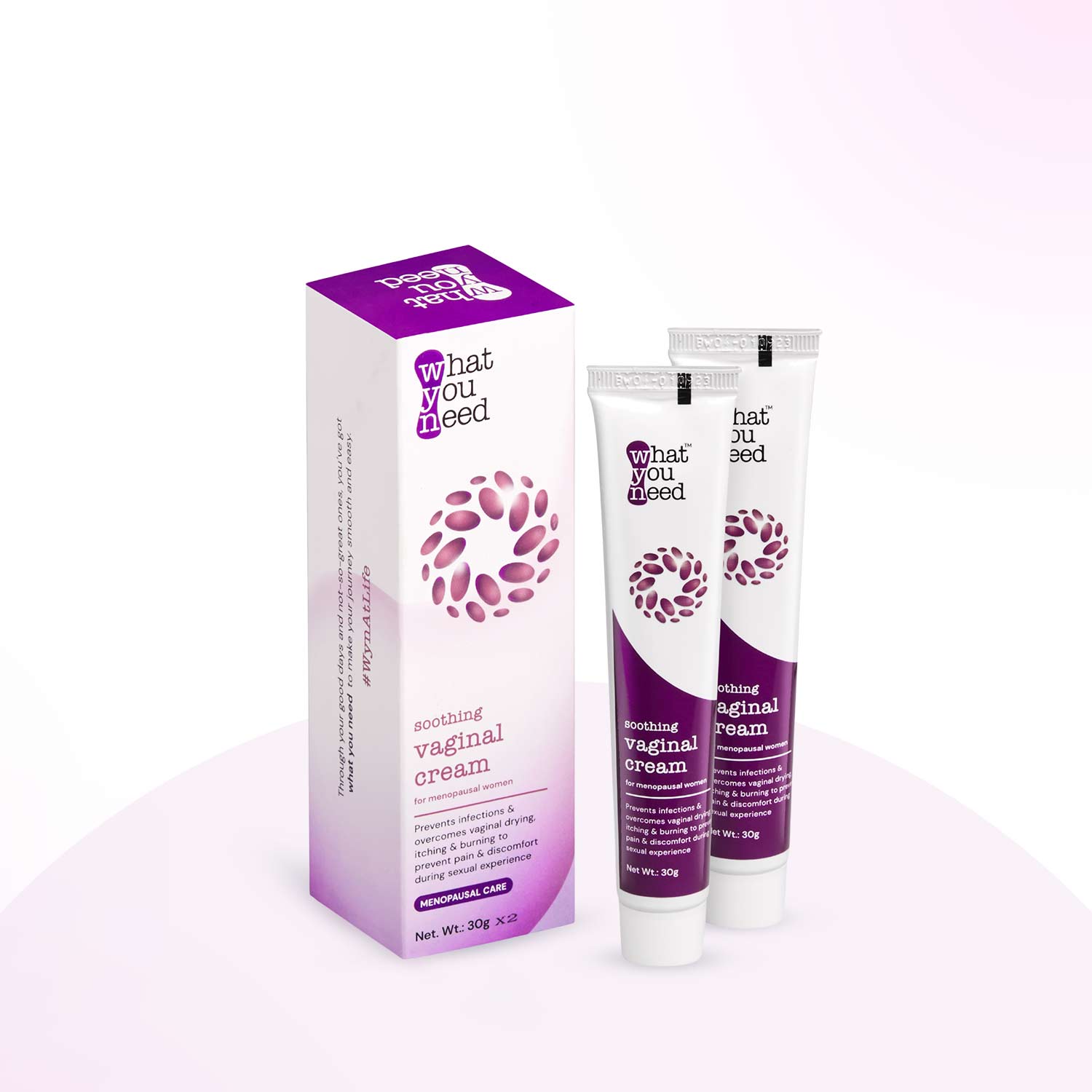Menopause is a natural transition in a woman's life, bringing about physical and emotional changes that vary from person to person. In India, menopause symptoms can start as early as 40, impacting overall well-being. This phase marks the end of reproductive years and can bring unexpected challenges.
Understanding these symptoms helps women navigate menopause with confidence and seek the right support. This guide explores menopause in detail, including its causes, common symptoms, and effective management techniques to maintain a healthy and balanced life beyond 40. Stay informed and embrace this transition with the right knowledge and care.
What is Menopause?
A woman's menopause, which signifies the end of her reproductive years, is a major life transformation. This natural biological process typically occurs in women aged between 45 to 55 years, although the timing can vary. It brings about hormonal changes that lead to the cessation of menstrual periods and is often accompanied by a range of symptoms that can impact daily life.
Common Menopause Symptoms & Signs include:
Menopause symptoms vary widely among women but commonly include:
1. Hot Flashes and Night Sweats
Sudden feelings of heat, sweating, and flushing, often disrupting sleep.
2. Mood Swings
mood swings, such as sadness, anxiety, and irritability.
3. Vaginal Dryness
Thinning and drying of the vaginal tissues can cause discomfort and pain during intercourse. Using a vaginal soothing cream can help restore moisture, reduce irritation, and improve comfort.
4. Sleep Disturbances
Night sweats are frequently associated with difficulty falling or becoming asleep.
5. Weight Gain
Changes in metabolism and hormonal fluctuations can contribute to weight gain, particularly around the abdomen.
6. Changes in Libido
Decreased sex drive or changes in sexual desire due to hormonal shifts.
7. Bone Density Loss
Decreased estrogen levels can lead to bone density loss and increase the risk of osteoporosis.
Menopause Natural Treatments for Hot Flashes
Hot flashes, one of the most common menopause symptoms, can be particularly bothersome. While hormone replacement therapy (HRT) is an option for some women, others seek natural alternatives to manage their symptoms. Here are some effective natural treatments:
- WYN's Menopause tablets & Supplement: These mints & cream are formulated with natural botanicals known for their ability to help with menopause symptoms. They offer a blend of herbs that support hormonal balance and alleviate hot flashes without the side effects of traditional HRT.
- Dietary Changes: Incorporating foods rich in phytoestrogens, such as soy products, flaxseeds, and whole grains, may help regulate hormone levels and reduce the frequency of hot flashes.
- Herbal Remedies: Herbs like black cohosh, evening primrose oil, and red clover are known for their potential to relieve menopause symptoms, including hot flashes. A healthcare professional must be consulted before beginning any herbal treatment, though.
- Lifestyle Adjustments: Managing stress through techniques like yoga, meditation, or deep breathing exercises can help reduce the frequency and intensity of hot flashes. Additionally, maintaining a healthy weight and staying physically active can support overall well-being during menopause.
Tips for a Healthy and Balanced Menopause
Beyond symptom management, lifestyle adjustments can significantly impact how women experience menopause:
- Regular Exercise: Physical activity not only helps manage weight but also improves mood, sleep quality, and overall health.
- Adequate Sleep: Creating a sleep-friendly environment and practicing relaxation techniques can alleviate sleep disturbances associated with menopause.
- Stress Reduction: Engaging in activities that promote relaxation, such as mindfulness and hobbies, can lower stress levels and improve overall quality of life.
- Regular Health Check-ups: Routine visits to a healthcare provider are crucial for monitoring bone health, heart health, and overall wellness during menopause.
FAQs
1: How long does menopause last?
The transition can last anywhere from a few months to several years. Although some women may continue to have symptoms for longer, menopause symptoms typically last four to five years.
2: Is early menopause hereditary?
Yes, genetics can play a role. You might have an early menopausal period if your mother or sibling did.
3: Can I still get pregnant during perimenopause?
Yes! Even with irregular periods, ovulation can still happen, so contraception is important if you’re not planning on having more children.
4. What are the side effects of menopause?
Menopause can cause various physical and emotional side effects. Common physical symptoms include hot flashes, night sweats, irregular periods, vaginal dryness, urinary tract infections, joint and muscle aches, weight gain, and skin changes. Emotional and cognitive symptoms may include mood changes, anxiety, depression, sleep disturbances, memory and concentration problems, and low self-esteem.
Conclusion
Navigating menopause involves understanding its symptoms, exploring treatment options, and making lifestyle adjustments that support overall well-being. While menopause is a natural phase of life, the right strategies can help women manage symptoms effectively.
Whether considering natural treatments like WYN's Menopause Mints or adopting lifestyle changes, women have options to navigate this transformative time with confidence and comfort. Embracing menopause as a natural part of life and seeking support as needed can empower women to live healthily and vibrantly through this new chapter.
- Choosing a selection results in a full page refresh.
- Opens in a new window.











